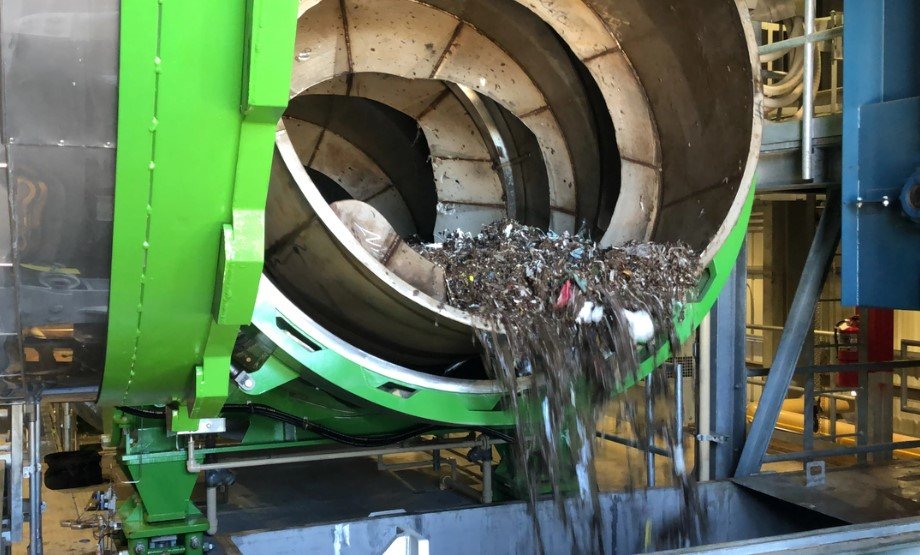Savannah River mill now accepts polycoated paper cups, boosting the company’s fiber recovery goals and supporting sustainability initiatives
Georgia-Pacific is cranking up its commitment to sustainability. The Atlanta-based paper giant announced Monday that its Savannah River mill in Rincon, Georgia, will now accept polycoated paper cups in its mixed paper recycling stream—marking a big step toward addressing one of the foodservice industry’s nagging environmental headaches.
With this move, Georgia-Pacific adds a third mill capable of recycling single-use PE-coated cups, joining facilities in Green Bay, Wisconsin, and Muskogee, Oklahoma. It’s another piece of the puzzle for an industry grappling with the challenges of turning everyday waste back into useful products.
Addressing a Growing Mountain of Cup Waste
Walk into just about any coffee shop and you’ll see the problem stacked up—literally.
Single-use paper cups have exploded in popularity over the past decade, from your morning latte to the soda you grab at lunch. But that boom has created mountains of waste, much of it non-recyclable under traditional methods. The culprit? That thin polyethylene (PE) lining inside the cups, which prevents leaks but also gums up conventional recycling systems.
John Mulcahy, Georgia-Pacific’s vice president of stewardship, didn’t mince words. “As single-use paper cups have grown in popularity, so too has paper cup waste,” he said in a statement.
The company’s Dixie brand alone cranks out millions of paper cups annually. That makes Georgia-Pacific’s role in solving the recycling challenge not just important—but essential.

How Georgia-Pacific Plans to Make It Work
Recycling polycoated cups isn’t as simple as tossing them in the blue bin and crossing your fingers.
These cups have to be processed in a special way so the valuable paper fiber can be recovered while the pesky plastic coating gets filtered out. Georgia-Pacific says its mills have nailed this delicate balance after years of hard-core, behind-the-scenes work.
Here’s what they’re doing, broken down:
-
Repulping Trials: Extensive testing to make sure the cups can be broken down efficiently.
-
Screening Technologies: Specialized equipment filters out the PE coatings without trashing the good fibers.
-
Reusing Recovered Fiber: The rescued paper gets turned into products like bath tissue, napkins, and paper towels.
Partnerships Pushing the Effort Forward
The company has partnered with big-name groups like the Foodservice Packaging Institute (FPI) and the NextGen Consortium, a project run by Closed Loop Partners’ Center for the Circular Economy. These alliances go back to 2018, when efforts to make polycoated paper recycling a reality really started picking up steam.
Kate Daly, managing partner at Closed Loop Partners, cheered the announcement. “Georgia-Pacific’s repulping capability will benefit the foodservice industry and further advance the industry’s environmental stewardship,” she said.
And she’s got a point. If more mills can handle these tricky cups, it could mean huge changes for how waste is managed across the country.
One key stat jumps out: according to industry estimates, Americans toss out more than 50 billion paper cups every year. Even getting a fraction of those cups recycled could shift the environmental needle in a big way.
Challenges Still Lurk Beneath the Surface
Just because the Savannah River mill can accept polycoated cups doesn’t mean they’ll magically stop clogging landfills overnight. Recycling depends on local collection programs, consumer habits, and whether facilities have the right sorting tech. Not every recycling center is set up to funnel cups to the right mills.
And there’s the education gap. Many people still don’t know they can recycle polycoated cups now—let alone where or how.
One mill official, speaking off the record, put it bluntly: “We can process the stuff. But if it doesn’t get to us properly sorted, we’re dead in the water.”
Big Picture: A Shift in Corporate Sustainability Thinking
One thing’s clear—this isn’t just about cups. It’s about a changing corporate mindset.
Companies like Georgia-Pacific are realizing that sustainability isn’t just a nice PR move. It’s becoming a core part of staying relevant—and staying profitable—especially as consumers grow pickier about environmental practices.
Mulcahy summed it up this way: “We continually look for ways to consume fewer resources as part of our longer-term strategy to identify solutions that benefit society.”
The Savannah River mill’s move might seem small. But it signals a broader trend of traditional industries reinventing themselves, sometimes under public pressure, sometimes out of sheer necessity.
